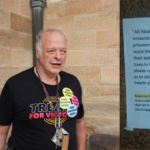Will the Budget Lead to Increased Levels of Crime?

The federal government’s controversial first budget has led to complaints and issues being raised by several welfare and advocacy groups.
A number of the budget proposals, including making people wait for six months before claiming unemployment benefits, cuts to welfare and the addition of a GP co-payment, are expected to cause significant financial difficulties for sections of the community who are already struggling.
It has been suggested by advocacy organisations and a number of others, most recently Greens MP Adam Bandt, that adopting some of the budget measures would increase the level of financial hardship that some people are already suffering, which could in turn lead to an increase in criminal activity as people look for other ways to make ends meet.
Waiting periods for benefits
There are a number of measures in the new budget which could potentially contribute to an increase in crime, especially that committed by younger people.
Under the new system, there will be a six-month waiting period for people under 30 before they can claim unemployment benefits.
This means that young people who are unable to earn an income will have to suffer extreme financial hardship for six months before they are able to receive government benefits.
It has been speculated that young people may be driven into criminal activities as a way to support themselves during this time.
Currently young people make up a significant number of the unemployed, and that number is expected to continue rising.
In western Sydney, for example, the youth unemployment rate is expected to rise to over 25% by 2016.
Along with the six-month wait for dole payments, the federal government has also cut a number of educational programs designed to help young people get the training and education they need.
Welfare groups have raised concerns that if this continues, there will be little chance of mainstream employment for young people in the western areas of Sydney, and this could lead to increased drug dependence, health problems and crime.
Further education out of reach
In addition to the wait for unemployment benefits, deregulation of university fees could put further education out of the reach of many young people, making it more difficult for them to get ahead financially.
For those who are studying and want to continue to study, they may need to resort to drastic measures to be able to afford their university fees.
Many students already struggle to pay their university fees, with some turning to prostitution and other illegal means to get themselves through.
The struggle for already vulnerable people to support themselves could potentially lead to higher levels of theft and financial crime, and also possibly increased dependence on drugs and alcohol as they look for a way to cope with their situation.
According to Democratic Labour Party Senator John Madigan, the budget is likely to exacerbate existing problems and lead to an increase in mental health issues, drug and alcohol abuse and domestic violence.
What groups of the community are most at risk?
As well as young unemployed and school leavers, other vulnerable sections of the community could also be placed further at risk as a result of the budget measures.
Aboriginal and Torres Strait Social Justice Commissioner Mick Gooda has spoken out against the budget as being “cruel” and likely to increase crime among indigenous people.
With many young Aboriginal people unemployed, the cuts to the welfare system are likely to affect them significantly which could lead to more of them committing crimes.
Other measures like the proposed GP co-payment and cuts to support organisations could increase the financial pressure.
As members of the Aboriginal community already have a higher chance of being in youth detention than other sectors of the community, cuts to the Aboriginal legal service are likely to compound the problem.
It is believed that the budget changes will be most likely to affect members of the community who are most vulnerable and who are already at risk, and that causing additional financial strain to those who are already under a great deal of pressure may lead to a number of social issues.
These include an increase in mental health problems, higher rates of drug and alcohol dependence, and a resulting increase in domestic violence, vandalism and other social problems.
It is also likely that the budget could lead to an increased rate of criminal activity as people struggle to pay their bills and provide for their basic needs.
An increased rate of crime and social problems is likely to put a significant amount of strain on government resources and this could lead to further problems down the track.
Currently the budget is awaiting approval by the Senate, and the measures are due to begin from next year if they are passed.






